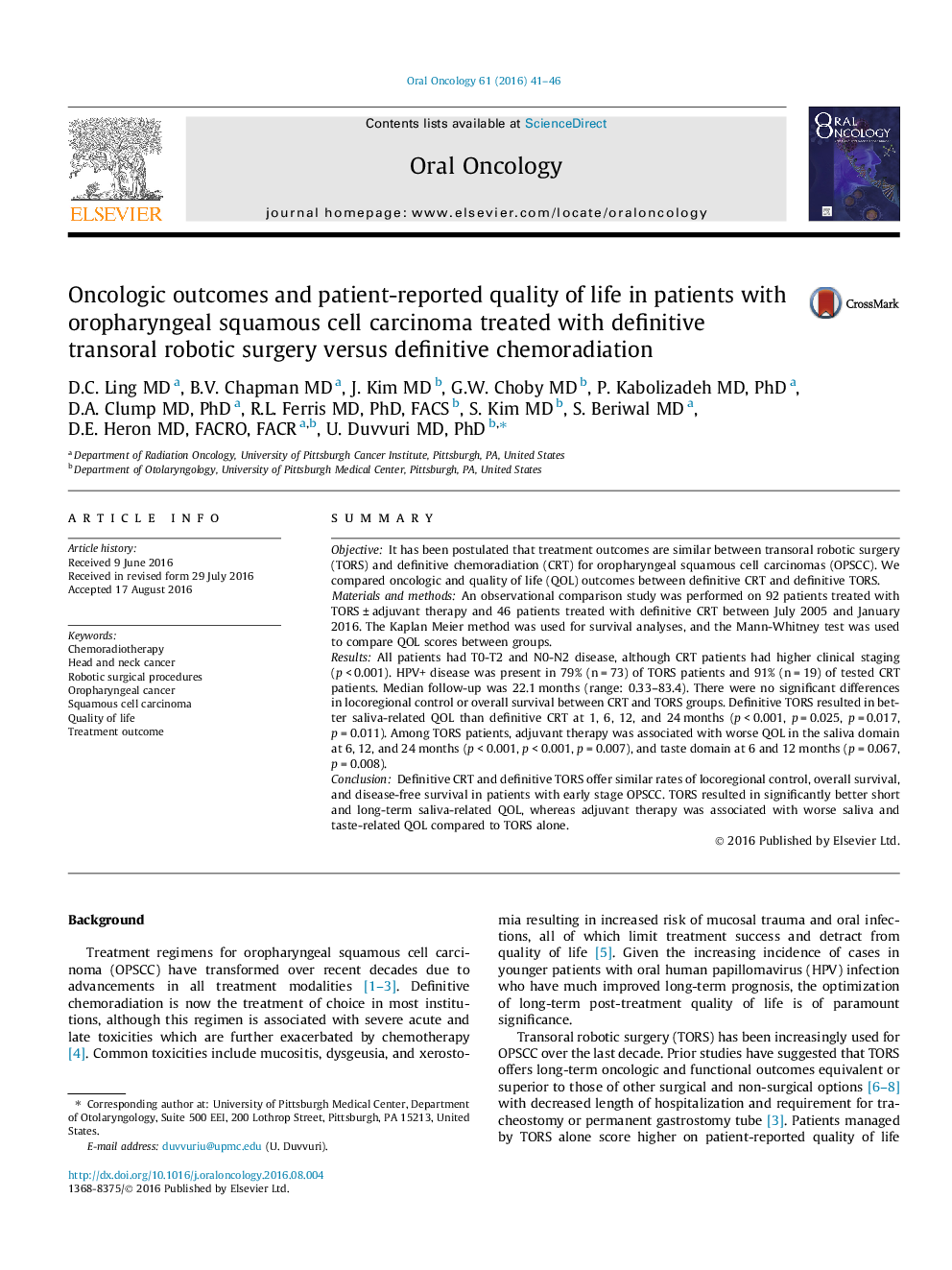| کد مقاله | کد نشریه | سال انتشار | مقاله انگلیسی | نسخه تمام متن |
|---|---|---|---|---|
| 3163721 | 1586249 | 2016 | 6 صفحه PDF | دانلود رایگان |
• CRT and definitive TORS offer similar oncologic outcomes in early stage OPSCC.
• TORS resulted in improved short and long-term saliva-related QOL compared to CRT.
• Use of adjuvant therapy after TORS lead to worse saliva and taste-related QOL.
• Use of TORS and N classification were significant predictors of saliva-related QOL.
SummaryObjectiveIt has been postulated that treatment outcomes are similar between transoral robotic surgery (TORS) and definitive chemoradiation (CRT) for oropharyngeal squamous cell carcinomas (OPSCC). We compared oncologic and quality of life (QOL) outcomes between definitive CRT and definitive TORS.Materials and methodsAn observational comparison study was performed on 92 patients treated with TORS ± adjuvant therapy and 46 patients treated with definitive CRT between July 2005 and January 2016. The Kaplan Meier method was used for survival analyses, and the Mann-Whitney test was used to compare QOL scores between groups.ResultsAll patients had T0-T2 and N0-N2 disease, although CRT patients had higher clinical staging (p < 0.001). HPV+ disease was present in 79% (n = 73) of TORS patients and 91% (n = 19) of tested CRT patients. Median follow-up was 22.1 months (range: 0.33–83.4). There were no significant differences in locoregional control or overall survival between CRT and TORS groups. Definitive TORS resulted in better saliva-related QOL than definitive CRT at 1, 6, 12, and 24 months (p < 0.001, p = 0.025, p = 0.017, p = 0.011). Among TORS patients, adjuvant therapy was associated with worse QOL in the saliva domain at 6, 12, and 24 months (p < 0.001, p < 0.001, p = 0.007), and taste domain at 6 and 12 months (p = 0.067, p = 0.008).ConclusionDefinitive CRT and definitive TORS offer similar rates of locoregional control, overall survival, and disease-free survival in patients with early stage OPSCC. TORS resulted in significantly better short and long-term saliva-related QOL, whereas adjuvant therapy was associated with worse saliva and taste-related QOL compared to TORS alone.
Journal: Oral Oncology - Volume 61, October 2016, Pages 41–46
